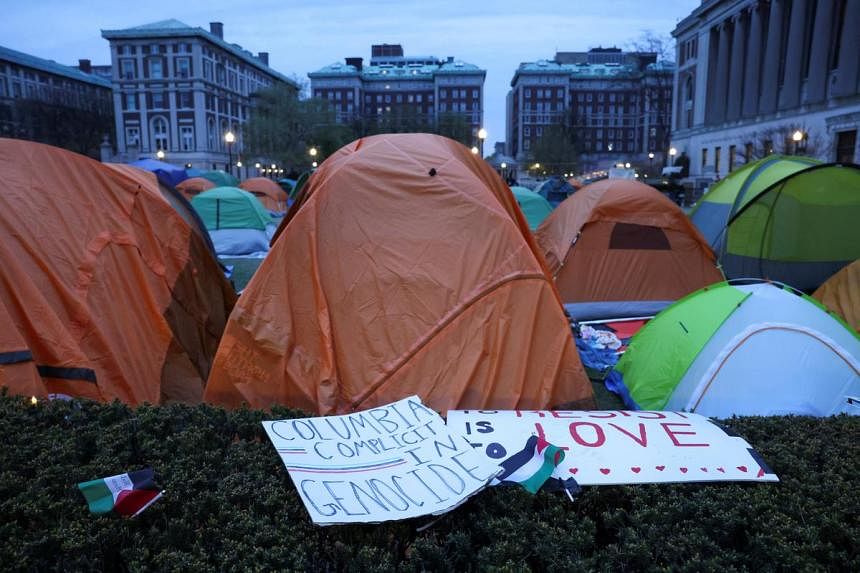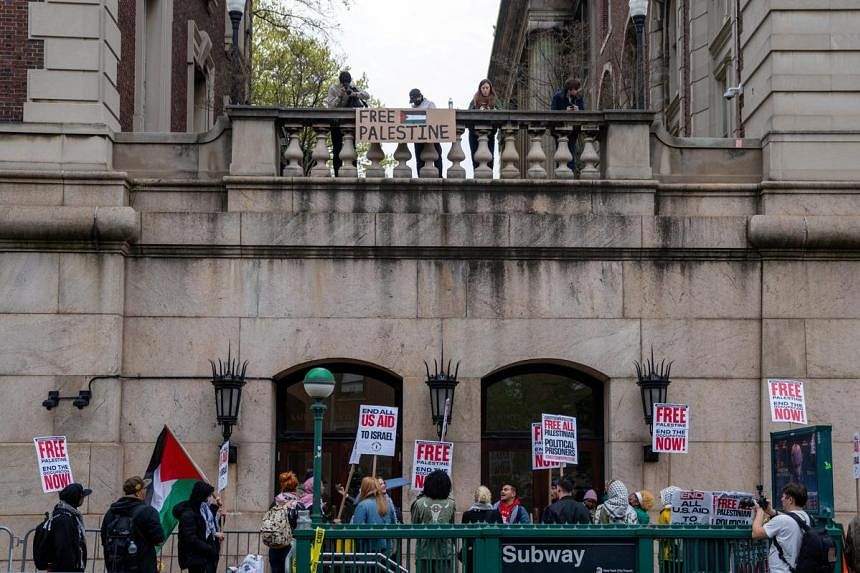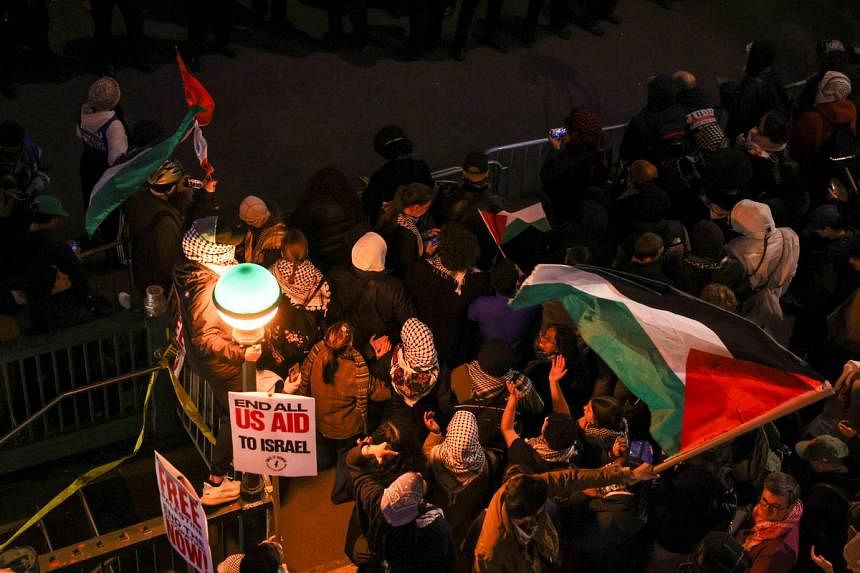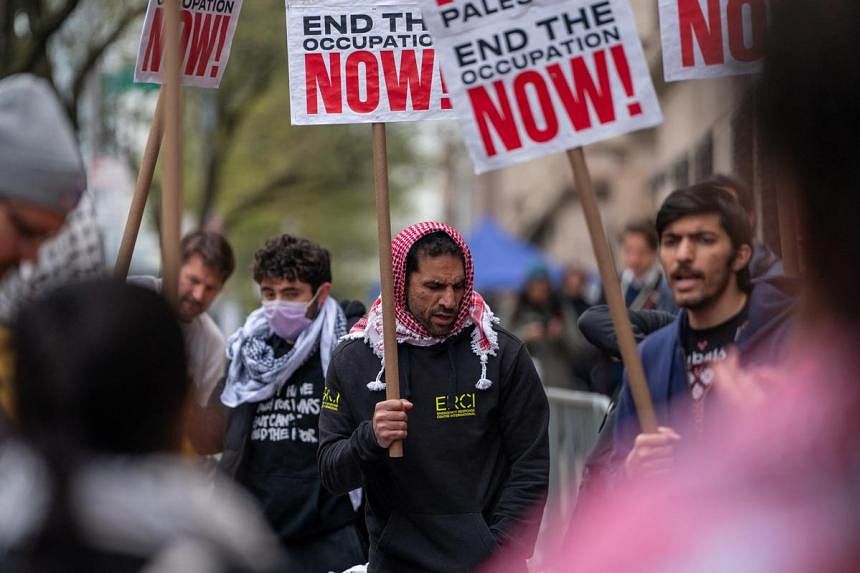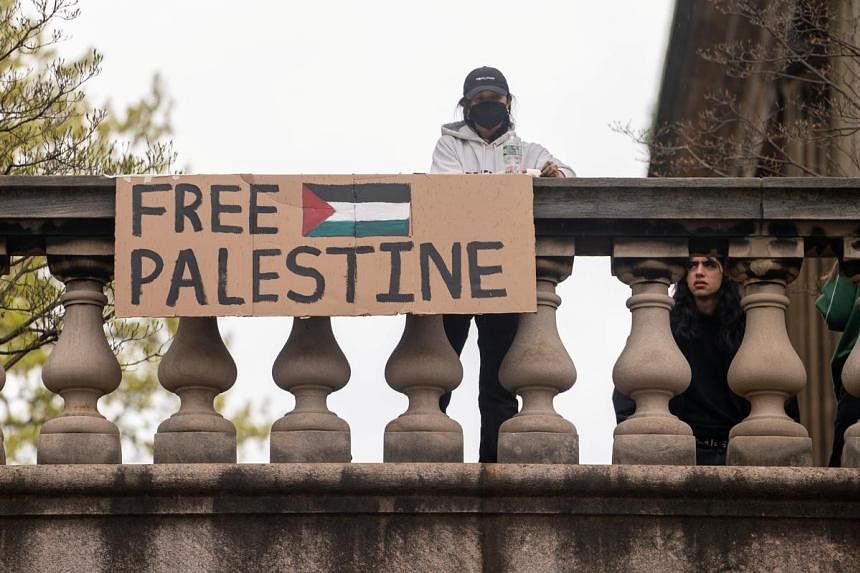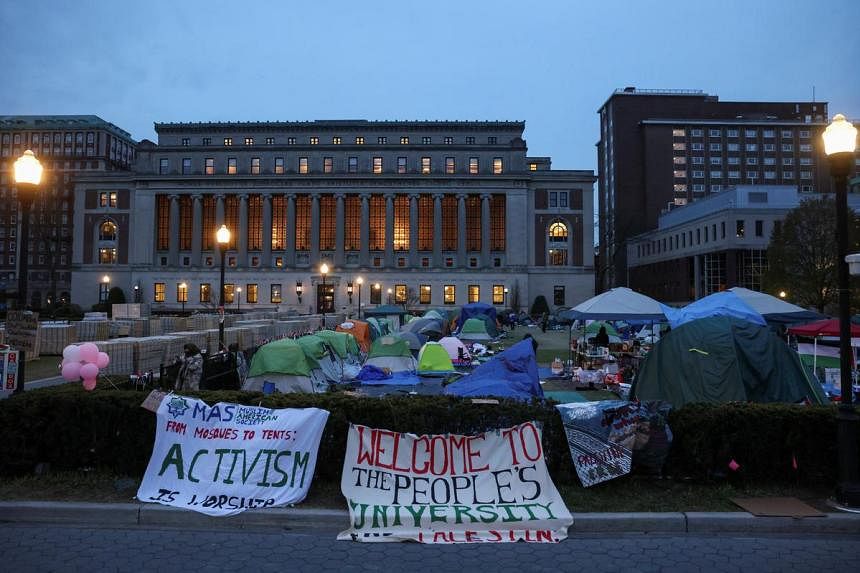NEW YORK - Columbia University said on Wednesday that students had agreed to take down "a significant number" of the dozens of tents set up at the school's New York City campus as part of an encampment to protest Israel's military campaign in Gaza.
The university administration said it had extended a midnight deadline by 48 hours to reach an agreement with student leaders of the protest, pointing to "significant progress" in the talks.
While the two sides were working to end the standoff, similar protests spread to other college campuses across the U.S., including an encampment that was being set up on the Los Angeles campus of the University of Southern California.
Student representatives of the Columbia University Apartheid Divest, a coalition of pro-Palestinian student groups, said on Wednesday morning that Columbia had agreed to extend the talks through to at least 4 a.m. on Friday.
Their statement said nothing about an agreement to dismantle tents. They said talks had faltered late on Tuesday night after Columbia threatened an "imminent sweep" of the encampment by the New York Police Department or the National Guard, but the school had since given a written commitment withdrawing the threat.
Asked about the students' claim of a threatened law enforcement sweep, Columbia spokesperson Ben Chang told Reuters in an email: "There is absolutely no basis to make that claim re: National Guard."
Dozens of CUAD's members have camped out on a lawn at the center of the Manhattan campus for the past week, calling on the university to end its investments in companies that support or profit from Israel's military actions in the occupied Palestinian territories. Columbia says the encampment violates school rules and was creating strife on campus.
"The university threatened to bring NYPD/National Guard if we don't agree to their 'empty offer' so we left the negotiations table as we don't [think] it's productive and in good faith," Mahmoud Khalil, a Palestinian student at Columbia who has been part of the negotiations with school administration, wrote in a text.
The school last Thursday called in police who arrested more than 100 students at the encampment on trespassing charges, an unusual move that outraged many faculty members. The students were suspended and the tents were dismantled, but students have since erected more than 100 tents on one of the lawns.
"The encampment raises serious safety concerns, disrupts campus life, and has created a tense and at times hostile environment for many members of our community," Columbia President Minouche Shafik said late on Tuesday, before the agreement to extend the negotiating deadline. "It is essential that we move forward with a plan to dismantle it."
CAMPUS UNREST
Columbia is one of many campuses across the United States where debate over Gaza and the U.S. military support of Israel has grown heated.
Since the protest began, some angry verbal confrontations have unfolded between pro-Palestinian and pro-Israel demonstrators, particularly in the busy Manhattan streets surrounding Columbia, and accusations on all sides of language that is antisemitic, Islamophobic or racist.
Students at the encampment say their protest has been peaceful, and that outsiders not connected with their movement are behind any inflammatory confrontations off-campus.
In interviews at several college campuses on Tuesday, Jewish students not involved in campus protests expressed a range of feelings, with some saying they felt endangered and others saying politicians had mischaracterized the protests.
"When you're an Israeli student on this campus, you feel like you have a target on your back, you feel unsafe and it's no wonder students from Israel are so hesitant to come here," said Milton Zerman, a second-year student from Los Angeles attending law school at the University of California, Berkeley.
At Columbia, Zohar Ford and Jacob Gold, two Jewish freshman, watched the bustling entrance of the encampment entrance on Tuesday afternoon, and though they were not involved in the protests they thought they were positive and did not make them feel unsafe.
"What I feel right now is that I think my identity as a Jewish person has been used by a lot of politicians to excuse infringement on free expression," Gold said. "Perhaps not on my personal free expression but on the free expression of many other college students, and that's extremely concerning to me as a precedent."
Shafik has been criticized by some prominent university donors and alumni groups, and members of the U.S. Congress, predominantly Republicans.
Some of them have called on her to resign for failing to quell the protests, calling the encampment antisemitic.
U.S. House Speaker Mike Johnson, a Republican, added his name to those demanding Shafik's resignation on Wednesday, and said he was traveling to Manhattan later in the day to meet with Jewish students attending Columbia.
Besides divestment, the protesters have vowed to keep the protest going until the school grants amnesty to students and faculty suspended from or disciplined by the school during the demonstrations. REUTERS
